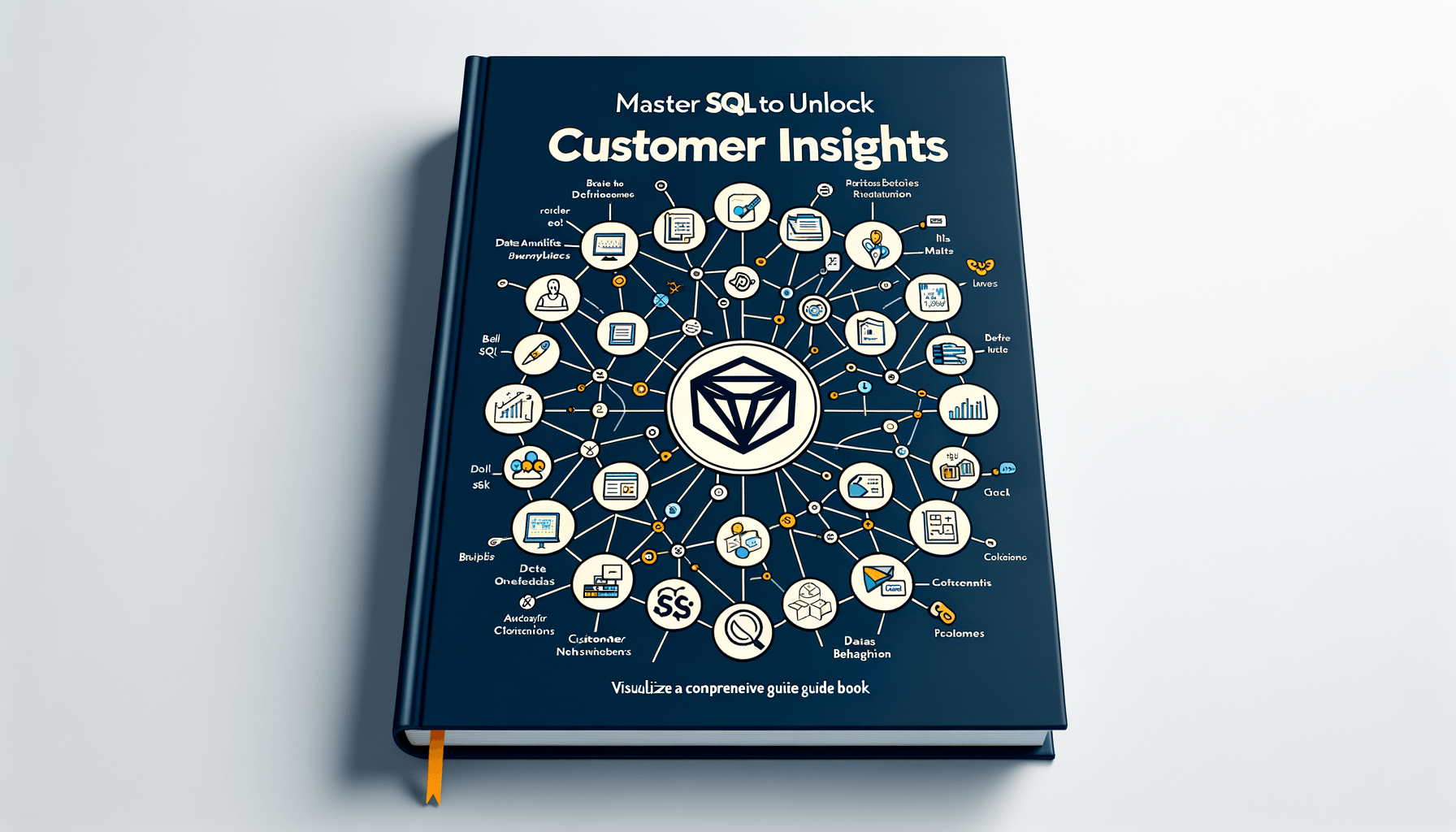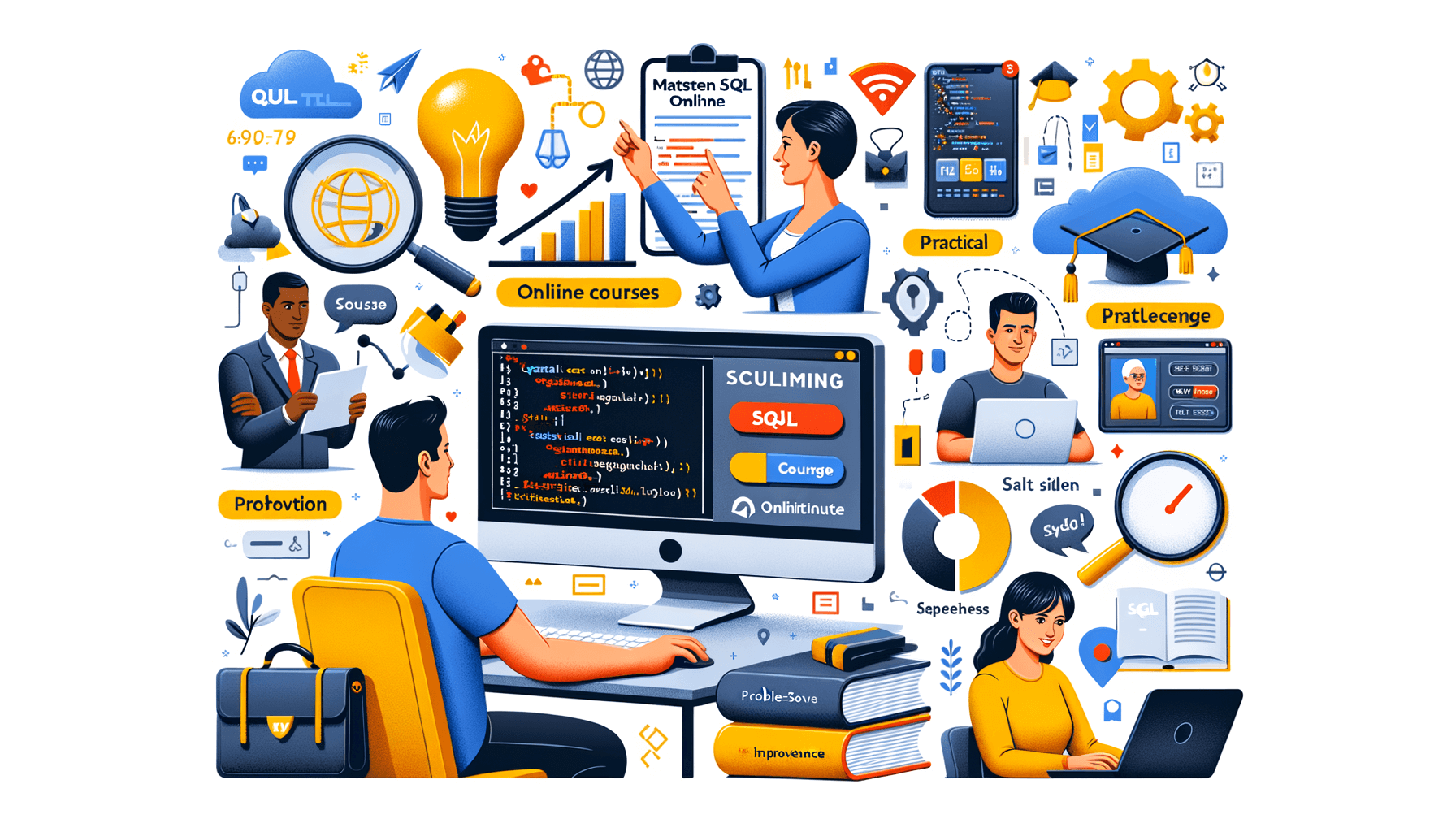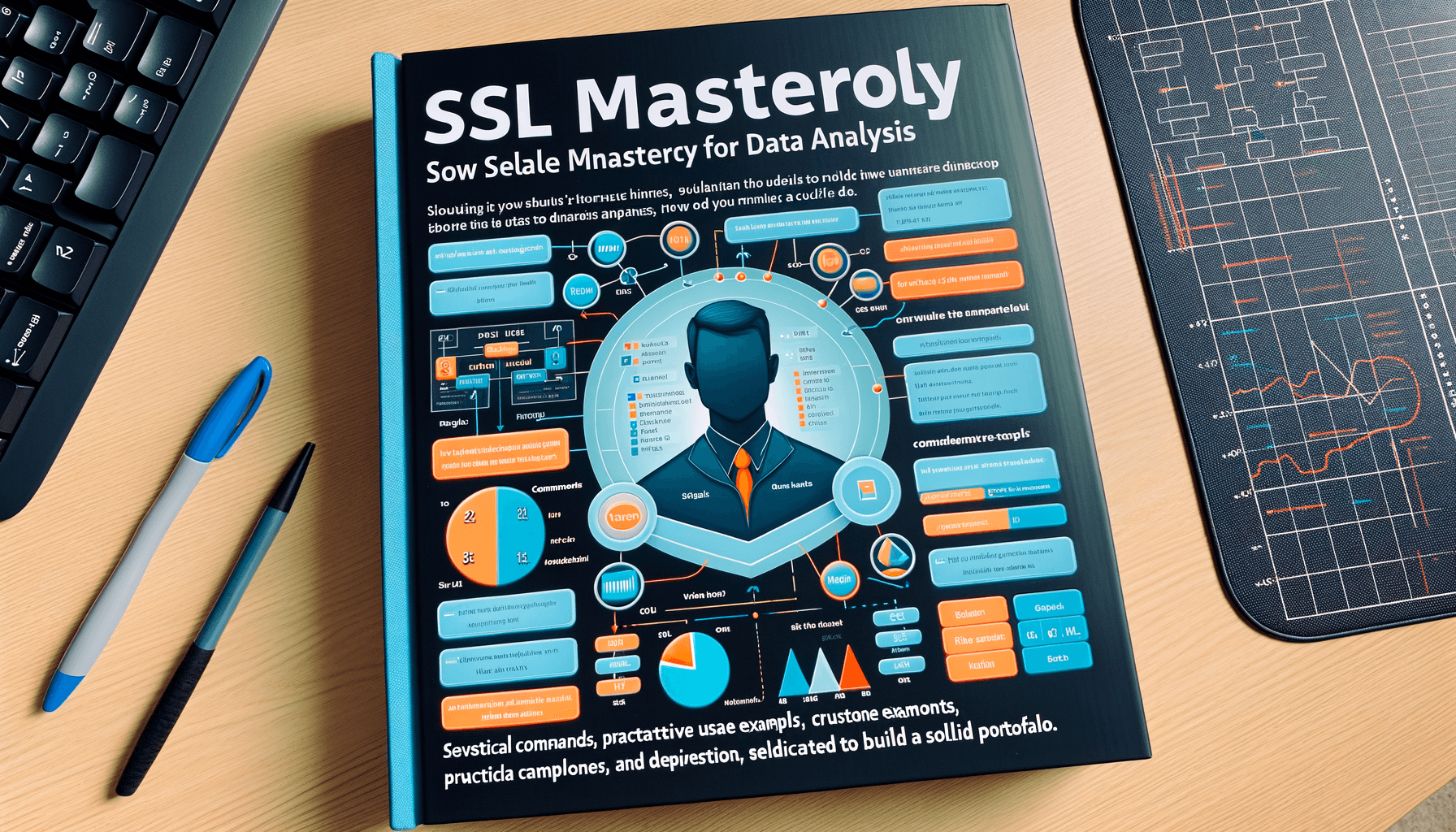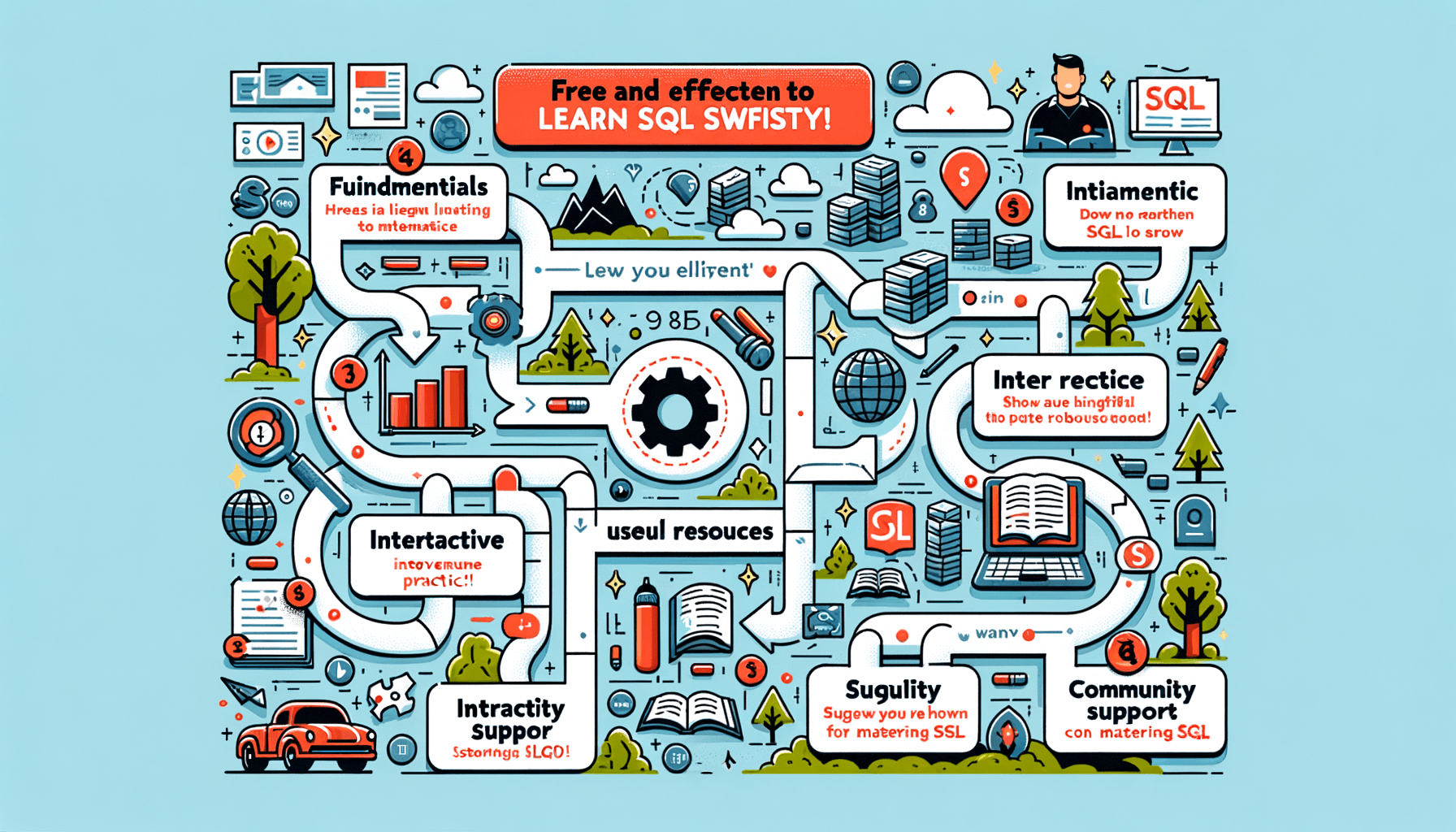A big variety of articles and resources

How to Learn SQL to Gain Customer Insights: A Comprehensive Guide
 Sia Author and Instructor
Learn SQL
Sia Author and Instructor
Learn SQL
8 minute read
Understanding the Basics of SQL for Customer Insights
What is SQL?
SQL, or Structured Query Language, is the foundational tool for managing and querying relational databases. SQL is a language created to deal with data, making it an indispensable skill for anyone looking to extract and analyze customer information.
Key SQL Concepts Relevant to Customer Data
To effectively use SQL for customer insights, it's essential to grasp key concepts such as tables, queries, joins, and filters. These elements allow you to manipulate and retrieve data efficiently. Learning these concepts through Jumpstart SQL: Free Introductory Lessons can provide a solid foundation for further SQL mastery.
Starting with SQL: First Steps
Begin your SQL journey by understanding basic queries and operations. As you progress, you'll learn to perform more complex data manipulations, which are crucial for deep customer behavior analysis. Here are a few initial steps to take:
- Learn the syntax and structure of SQL.
- Practice simple queries to retrieve customer data.
- Gradually incorporate more advanced SQL functions into your analyses.
The Role of SQL in Customer Behavior Analysis
How SQL Facilitates In-depth Customer Analysis
SQL is a powerful tool for diving deep into customer data, allowing businesses to uncover patterns and insights that are not visible on the surface. SQL's ability to handle large volumes of data makes it indispensable for detailed customer behavior analysis. This in-depth analysis is crucial for tailoring marketing strategies and improving customer experiences.
Using SQL to Segment and Understand Customer Groups
Segmentation is key in understanding different customer groups. SQL allows for the efficient categorization of data, making it easier to identify and analyze groups based on specific criteria. This segmentation helps in crafting personalized marketing messages and offers, which are more likely to resonate with each group.
Case Studies: SQL in Action for Customer Insights
To illustrate the practical application of SQL in customer behavior analysis, consider the following case studies:
- A retail company used SQL to track customer purchase patterns and adjust their inventory accordingly.
- A service provider analyzed customer service calls using SQL to identify common issues and improve service quality.
These examples show how SQL can be directly applied to enhance business strategies and customer understanding.
Practical SQL Skills for Customer Data Analysis
Essential SQL Queries for Customer Insights
To effectively analyze customer data, mastering essential SQL queries is crucial. Select, join, and aggregate functions are foundational for extracting meaningful insights from large datasets. Here are some common queries:
- SELECT * FROM customers WHERE age > 30;
- SELECT COUNT(*), region FROM customers GROUP BY region;
Advanced SQL Techniques for Deeper Insights
Delving deeper into SQL allows for more sophisticated analysis techniques. Subqueries, window functions, and conditional aggregates can reveal trends and patterns that basic queries might miss. This advanced understanding can significantly enhance your data-driven decision-making capabilities.
Best Practices in Writing Efficient SQL Queries
Efficiency in SQL query writing is paramount for handling large volumes of data without compromising performance. Here are some best practices:
- Use explicit joins rather than subqueries for better performance.
- Optimize queries by indexing columns that are frequently searched or joined on.
Blockquote: Always test your SQL queries on a small dataset before applying them to the entire database to ensure they perform as expected.
Integrating SQL with Other Data Tools for Enhanced Insights
Combining SQL with BI Tools
SQL's integration with Business Intelligence (BI) tools is crucial for transforming raw data into actionable insights. By connecting SQL databases with BI platforms, analysts can create dynamic reports and dashboards that help in making informed business decisions.
SQL and Data Visualization
Data visualization is a powerful way to communicate complex data. When SQL is used in conjunction with data visualization tools, it allows for the creation of intuitive graphical representations of data, making it easier to identify trends and patterns.
Leveraging SQL in Data Warehousing
SQL plays a vital role in data warehousing by enabling efficient data aggregation and retrieval. Data warehousing is essential for organizations looking to perform complex queries and analysis at scale, ensuring that data remains manageable and accessible.
Learning Resources and Courses to Master SQL for Customer Insights
Top Online Courses and Tutorials
To effectively harness SQL for customer insights, engaging with top online courses and tutorials is essential. Courses like the 'Data Analyst - Introduction to SQL' are beginner-friendly and provide a solid foundation in SQL skills necessary for data analysis. These courses often include videos, challenges, and real-world problems to ensure a comprehensive learning experience.
Books and Guides Worth Reading
For those who prefer self-paced learning, numerous books and guides are available that delve deep into SQL and its applications in customer data analysis. Selecting the right materials can significantly enhance your understanding and application of SQL in real-world scenarios.
Community and Forums for SQL Learners
Joining communities and forums is invaluable for continuous learning and support. These platforms allow you to connect with other learners, share experiences, and seek help on complex SQL queries. Engaging regularly can help maintain and update your SQL skills effectively.
Implementing Your SQL Knowledge in Real Business Scenarios
From Learning to Application: Steps to Take
Once you've mastered the basics and advanced techniques of SQL, the next step is to apply these skills in real business scenarios. Start by identifying specific business questions that SQL can help answer. Then, develop SQL queries to extract relevant data and insights. Practice regularly to refine your skills and adapt to different business needs.
Real-world Examples of SQL for Customer Insights
SQL's power is showcased in its ability to transform raw data into actionable insights. For instance, businesses use SQL to track customer behavior, optimize marketing strategies, and improve product offerings. Highlighting success stories and case studies can provide inspiration and practical guidance for applying SQL in various industries.
Evaluating the Impact of SQL Analysis on Business Success
The true value of SQL lies in its impact on business decision-making. By enabling detailed analysis and reporting, SQL helps businesses measure the effectiveness of different strategies and make informed decisions. Use metrics and KPIs to assess the impact of SQL-driven insights on business performance, ensuring continuous improvement and competitive advantage.
Overcoming Common Challenges in Learning SQL for Customer Insights
Navigating Initial Hurdles
Learning SQL can seem daunting at first, especially when faced with the vast amounts of customer data. Start with the basics and gradually move to more complex queries. It's crucial to understand the foundational concepts before diving into more advanced topics. Practicing with real-world problems, like those found in a Mini Course: SQL Query Expansion, can significantly enhance your learning curve.
Advanced Problem-solving in SQL
As you progress, you'll encounter more complex scenarios requiring advanced SQL techniques. Here, the challenge is not just understanding SQL syntax but also how to apply it effectively to derive meaningful insights from large datasets. Developing a systematic approach to problem-solving in SQL is essential. Consider engaging with scenarios that involve UNION and MIN/MAX functions to broaden your understanding.
Maintaining and Updating SQL Skills
SQL is an ever-evolving language with new features and updates being released regularly. To stay relevant, continuous learning and application of new SQL features and best practices are necessary. Joining forums and community groups can be an invaluable resource for staying updated and getting support when you're stuck.
Conclusion
In conclusion, mastering SQL is an invaluable skill for anyone looking to delve deeper into customer data to drive business success. Through the comprehensive guide provided, you've learned the importance of SQL in analyzing customer behaviors, making informed decisions, and tailoring marketing efforts. As you continue to explore and utilize SQL, remember that the journey to data proficiency is ongoing. Embrace the learning process, apply the insights gained, and watch as your business transforms through data-driven decisions. Keep exploring further resources and courses to enhance your SQL skills and stay ahead in the data-driven world.
Frequently Asked Questions
What is SQL and how can it help in understanding customer behavior?
SQL (Structured Query Language) is a programming language used for managing and manipulating relational databases. It helps in understanding customer behavior by allowing businesses to query large amounts of data, identify patterns, segment customers, and derive insights that inform decision-making.
What are the first steps to learning SQL for customer insights?
The first steps include understanding basic SQL syntax and queries, setting up a database environment, and practicing simple data retrieval operations. Beginners can start with online tutorials or introductory courses that focus on the fundamentals of SQL.
Can SQL be integrated with other tools for better insights?
Yes, SQL can be integrated with various Business Intelligence (BI) tools and data visualization platforms to enhance data analysis and insights. Combining SQL with these tools allows for more sophisticated analyses and easier interpretation of data.
What are some common challenges when learning SQL for customer data analysis?
Common challenges include understanding complex SQL queries, optimizing query performance, and dealing with large datasets. It's also crucial to continuously update SQL skills to handle evolving data analysis needs effectively.
Where can I find resources to learn SQL for customer insights?
There are numerous online courses, books, and tutorials available that focus on SQL for data analysis. Websites like LearnSQL.com offer structured courses ranging from beginner to advanced levels, specifically tailored for business applications.
How can I apply SQL knowledge in real business scenarios?
Applying SQL knowledge in business involves analyzing real customer data to uncover insights, making informed decisions based on data analysis, and continuously monitoring and refining SQL queries to improve the quality of insights.
Related Articles

10 Effective Tips on How to Learn SQL Online
9 minute read

A Comprehensive Guide to Learn SQL for Analysts
8 minute read


